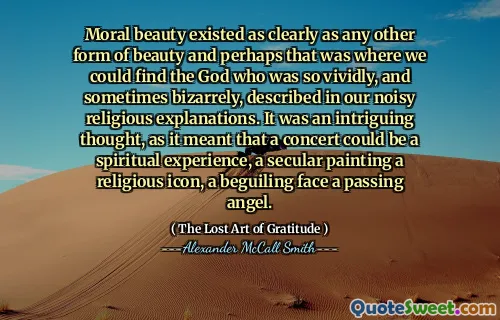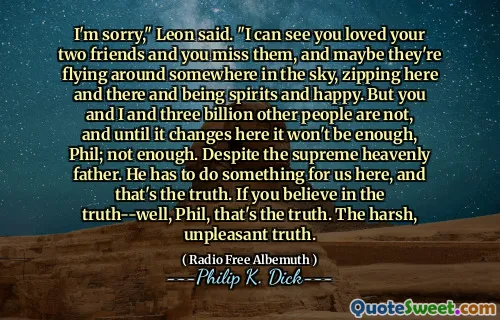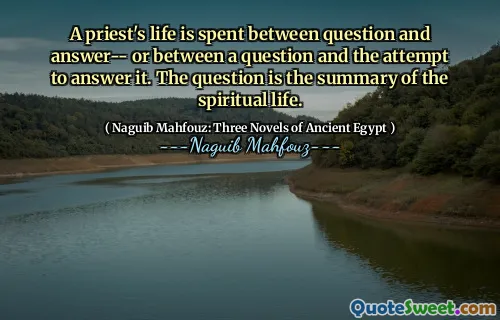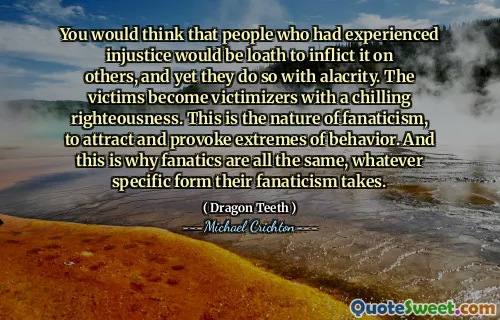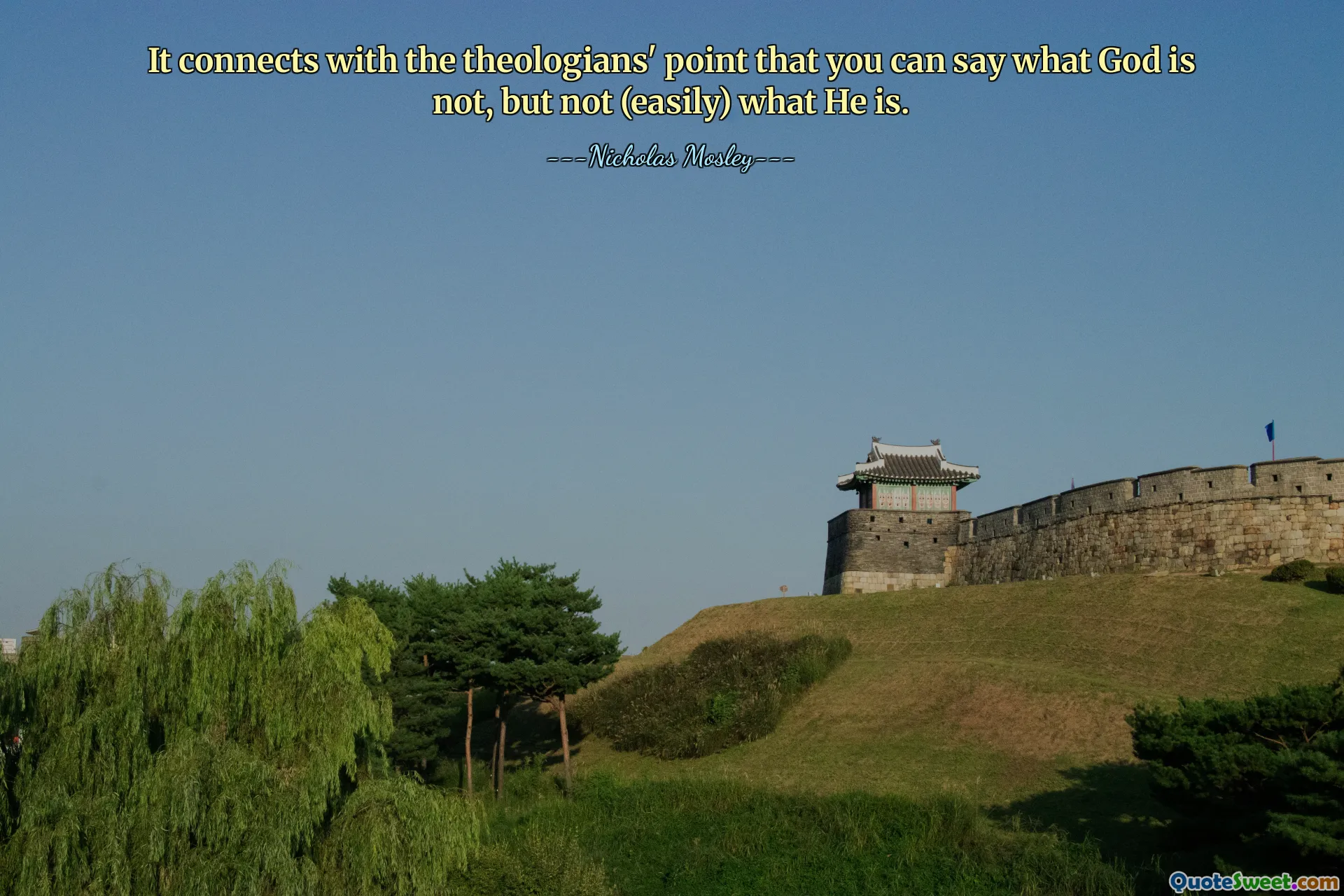
It connects with the theologians' point that you can say what God is not, but not (easily) what He is.
This quote highlights a profound aspect of theological and philosophical inquiry: our understanding of the divine is inherently limited by language and human cognition. The idea that we can more readily define what God is not rather than what He is resonates with many theological traditions, which often emphasize the ineffability and transcendence of the divine. This perspective aligns with apophatic theology, which suggests that we gain knowledge of God through negation—by stating what He is not—because positive attributes tend to fall short of capturing His true essence. In practical terms, attempts to precisely define God's nature often lead to oversimplifications, anthropomorphisms, or misrepresentations. Instead, the recognition of what God is not serves as a humbling reminder of our epistemological limits. It invites humility in our theological assertions and underscores the mysterious nature of the divine. We must approach discussions about God with reverence and awareness that our language, no matter how precise, may never fully encompass the divine reality. This perspective encourages thinkers and believers alike to focus on the moral and relational aspects of their faith, rather than dogmatic definitions. It also fosters a sense of openness to mystery and the divine beyond human comprehension, prompting continuous inquiry and reverence. Embracing this limits also propels philosophical humility, reminding us that certainty about the divine is elusive, and perhaps, that the most profound truths are beyond words.
---Nicholas Mosley---






